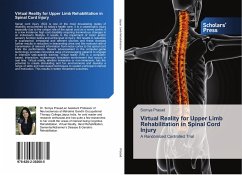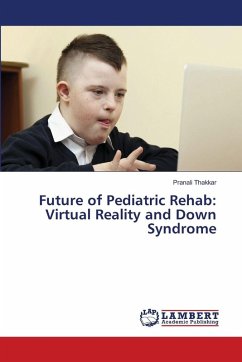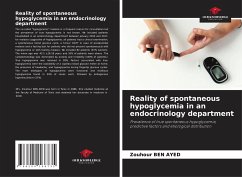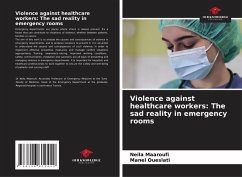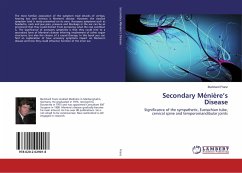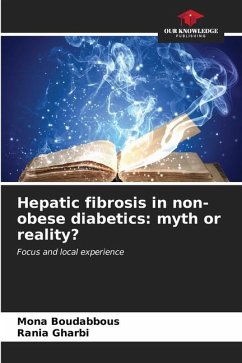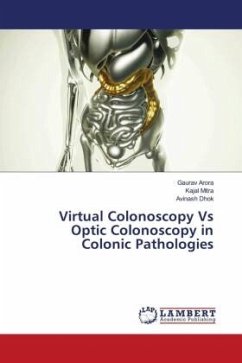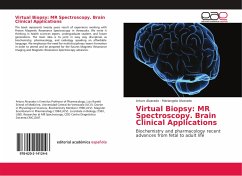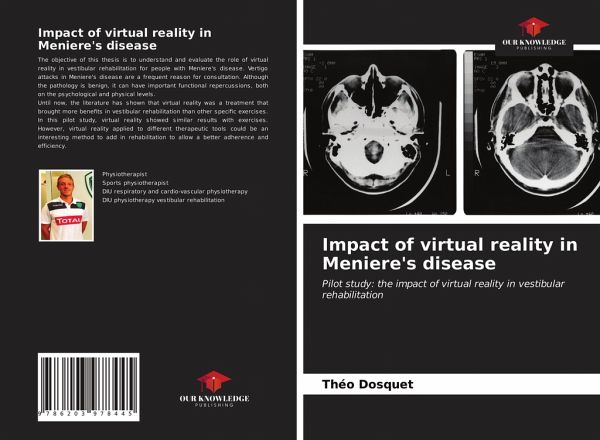
Impact of virtual reality in Meniere's disease
Pilot study: the impact of virtual reality in vestibular rehabilitation
Versandkostenfrei!
Versandfertig in 6-10 Tagen
27,99 €
inkl. MwSt.

PAYBACK Punkte
14 °P sammeln!
The objective of this thesis is to understand and evaluate the role of virtual reality in vestibular rehabilitation for people with Meniere's disease. Vertigo attacks in Meniere's disease are a frequent reason for consultation. Although the pathology is benign, it can have important functional repercussions, both on the psychological and physical levels. Until now, the literature has shown that virtual reality was a treatment that brought more benefits in vestibular rehabilitation than other specific exercises. In this pilot study, virtual reality showed similar results with exercises. However...
The objective of this thesis is to understand and evaluate the role of virtual reality in vestibular rehabilitation for people with Meniere's disease. Vertigo attacks in Meniere's disease are a frequent reason for consultation. Although the pathology is benign, it can have important functional repercussions, both on the psychological and physical levels. Until now, the literature has shown that virtual reality was a treatment that brought more benefits in vestibular rehabilitation than other specific exercises. In this pilot study, virtual reality showed similar results with exercises. However, virtual reality applied to different therapeutic tools could be an interesting method to add in rehabilitation to allow a better adherence and efficiency.



